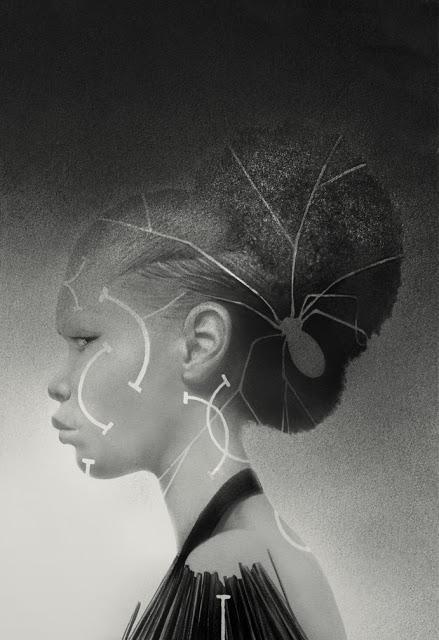It's no secret that I love Nnedi Okorafor, and even less of a secret that I judge book covers (broken record, much!). Well, towards the end of 2016, Nnedi Okorafor shared the covers for US editions of the Akata Witch Series - both the new look for the paperback of Akata Witch, as well as for her forthcoming Akata Warrior. The first I thought when I saw them, was, 'What a powerful image!'
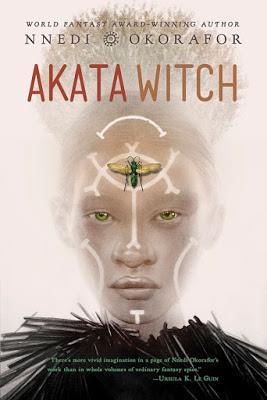
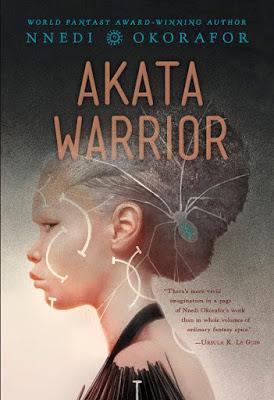
They were illustrated by Greg Ruth, who writes openly about this being 'one of the most challenging and exciting exercises in book cover making'. The post not only shares the initial version of the Akata Warrior cover, but touches on art, race and racial awareness, cultural sensitivity and more. As Ruth writes:
We often in art mistake race for colour, and what this taught me was a way to skip past those initial assumptions and get right to the heart of her structure rather than her tone. This meant a lot of research into what physical features are distinctly Nigerian, and bringing those to bear on this young woman. She had to, without leaning on skin colour, be authentically Nigerian and herself as a true native of her culture in every bit as much the same way in which I might need to address and accomplish the same for a Cambodian scientist, or an Icelandic luthier.I absolutely loved the honesty in the post, and the self-awareness of Ruth's whiteness and need to be both racially and culturally sensitive to the art and depiction of Sunny - her Nigerianess, her youth and her albinism. That a powerful young woman is front and center on a book cover, is also a beautiful thing to see.
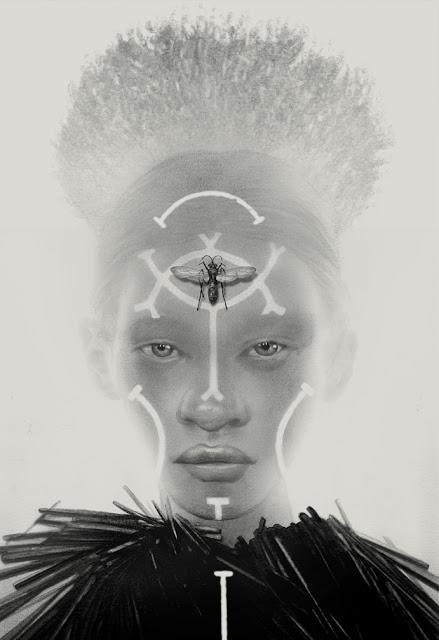
Final graphite drawing of 'Akata Witch'. Image via Muddy Colors.
Final graphite drawing of 'Akata Warrior'. Image via Muddy Colors.
But then again, women (whether young or older) have always been central to Okorofar's works and have always been a a focal point on her covers. This can be seen in the beautiful German editions of Lagoon, Who Fears Death and The Book of Phoenix - which were also illustrated by Greg Ruth. It's even clear in Ruth's use of the term 'powerful central women' to describe his portraits of the three female protagonists in the respective books. Ruth also shares the process of illustrating these three book covers for Cross Cult in Germany. And because I am all about powerful women, here they are: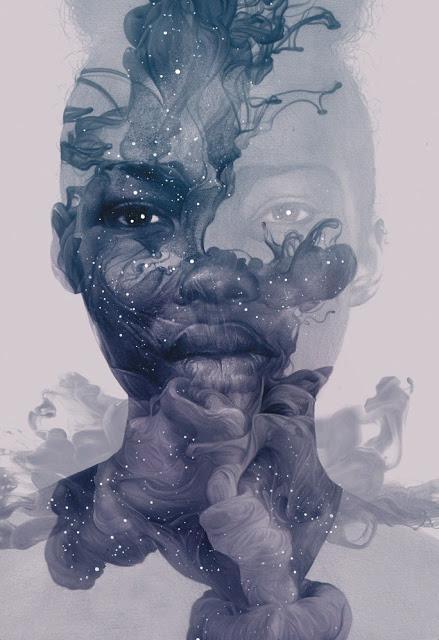
For 'Lagoon'. Illustration by Greg Ruth. Image via Muddy Colors.
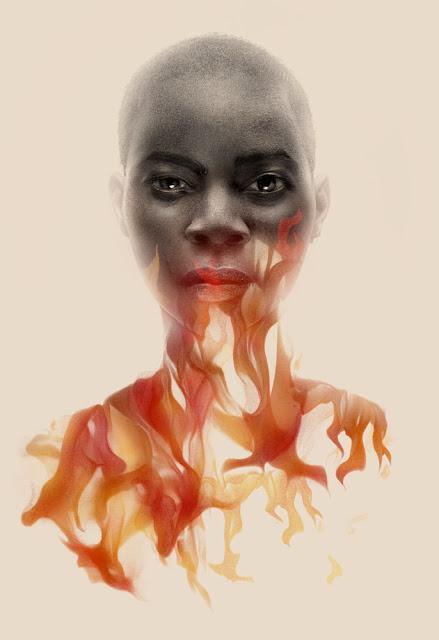
For 'The Book of Phoenix'. Illustration by Greg Ruth. Image via Muddy Colors.
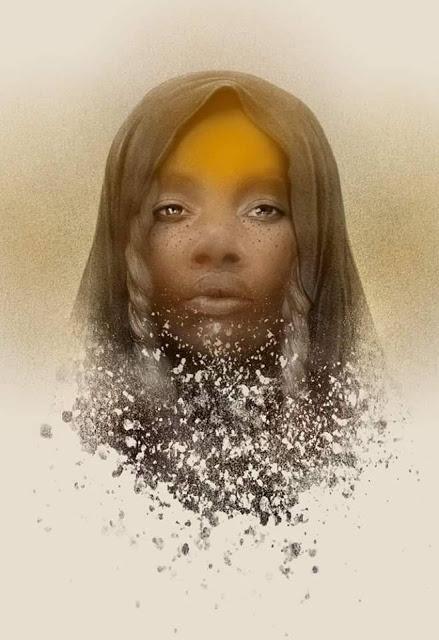
From 'Who Fears Death'. Illustration by Greg Ruth. Image via Muddy Colors.
Of course, Greg Ruth is not the only illustrator or artist that has collaborated with Nnedi Okorafor. There's David Palumpo, a freelance illustrator who provides 'genre themed artwork' and whose art is on Binti and Binti: Home. While the final version of Binti is below, on Muddy Colors, Palumpo shares some of the original sketches.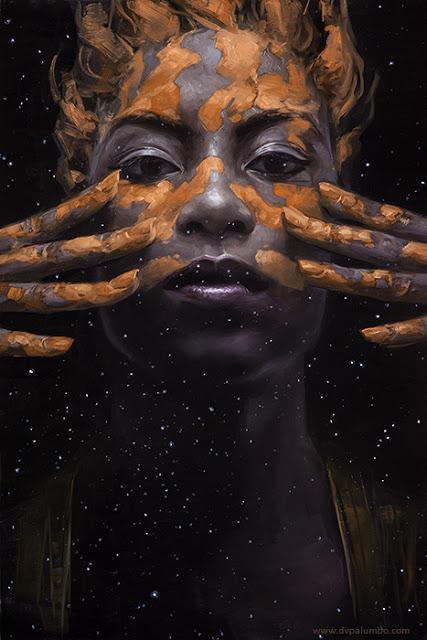
Final version of Binti. Illustration by David Palumpo. Image via dvpalumpo.com
Again women are front and center on these covers, and Nnedi Okorafor also recently shared on her Instagram page a photo of Palumbo painting the art for Binti: Home. It's pretty cool to be abel to see the cover being created.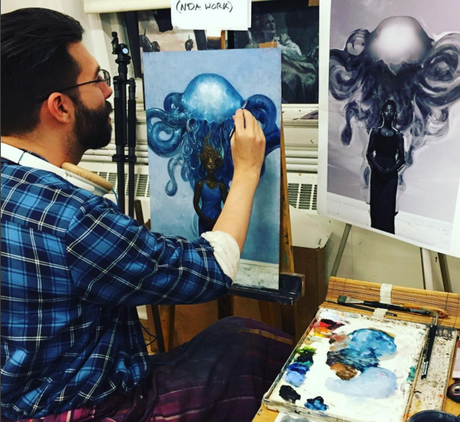
Photo via Nnedi Okorafor's Instagram page
Even the UK editions of Lagoon and The Book of Phoenix (both illustrated by Joey Hi-Fi), which also depict events happening on the cover - are designed in a way that draws your eyes straight to the female creatures.
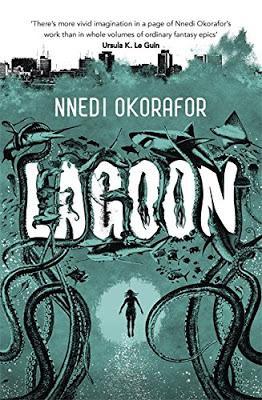
It's a truly beautiful thing seeing such striking images of powerful women on the covers of books.
